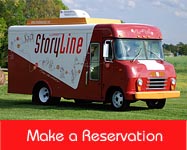An Abiding Sense of History
It was a beautiful and memorable October 7th atop Kings Mountain. Several hundred gathered to observe the 234th anniversary of the battle that turned the tide of the Revolutionary War and set in motion the chain of events that led to America’s independence from Britain.
It was a colorful occasion – men and women dressed in period costumes, members of the Sons and Daughters of the American Revolution and other organizations dedicated to preserving the history and legacy of this important piece of Americana. They laid wreaths at the base of the monument that pays tribute to the Patriots who fought, including the 28 who died.
The gathering included a handful of hardy men who had spent two weeks traveling to Kings Mountain from Eastern Tennessee, re-creating the march of the “Overmountain Men” who formed the backbone of the Patriot force at the battle. Those originals traveled more than 300 miles over rugged terrain, through brutal weather, to find and defeat British Major Patrick Ferguson and his force on that low ridge near the border of the two Carolinas. The modern-day group have been making this journey for 40 years, stopping along the way to tell anyone who can listen the story of those 1780 frontiersmen.
I’m one who thinks history is vital – that we have to know where we came from, and how we got where we are now, to have any idea how to proceed into the future. When I write a novel, I need to know my characters’ backstory – the how and why of their journey to the “now.” I want my readers to understand the baggage they tote along with them, the joys and agonies of their lives that make them who they are and give a glimpse into how they might deal with their present dilemmas.
So, we all fit into a history – both personal and societal. And having a sense of that is crucial to understanding who we are, as individuals and as a people.
I love the stories of history. In the research that went into writing my new play, “Liberty Mountain,” I read volumes about the settling of the Carolinas, the lives of the families who came to the southern colonies from Europe to make a fresh start, to work hard and enjoy the fruits of their labor, to worship as they pleased. It’s the ordinary folks I’m most interested in, and in crafting the story of Kings Mountain, I came to know these ordinary folks – men, women and children – and especially the volunteer citizen militiamen who fought the battle on both sides. They had an intensely personal stake in the outcome, and when it was over, they went back to being farmers and millers and shopkeepers. But they were profoundly changed by the experience, and so was the country. The difference was one word: liberty.
At the wreath-laying ceremony on top of the mountain a few days ago, I was heartened to see a large group of high school students. Their presence told me that folks at their school believe that history is important. I trust that the experience made a lasting impression on the young folks, because we depend on them to carry our history and its lessons forward. We put it in their hands, and trust they will continue to tell the stories of who we are and how we came to be Americans. If they understand that, it will help them shape their future.
I hope my play, “Liberty Mountain,” will play a small part in perpetuating the unique piece of history we call Kings Mountain. The production will continue in the future, with performances every summer. I hope folks, especially young folks, will come from across the nation – even the world – to see and hear this inspiring story of courage and fortitude.


